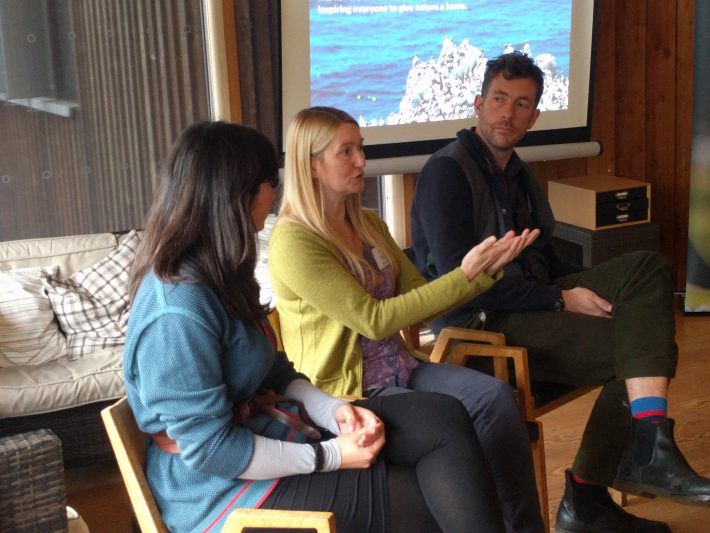Key lessons from our Policy Training Workshop in Edinburgh
On 8 November, the BES Scottish Policy Group ran a day-long workshop at the Royal Botanic Garden Edinburgh aimed at introducing participants to the world of policymaking.

The workshop featured a series of talks from policymakers and a politician, focusing on ways to build connections between the scientific and policy communities as well as how to make research more accessible and salient. After these talks and a panel discussion on linking science and policy, attendees were challenged to design one-page briefs for Ministers summarising a recent scientific paper. A number of valuable themes emerged during the talks and discussion, which I examine below.
Building Relationships, Connections and Networks
The importance of making connections by building networks and creating relationships with the policy community was highlighted by several speakers. Tom Edwards (Policy Specialist at Scottish Wildlife Trust and Director of 3E Services) emphasised that scientists can get involved in the Scottish policy process at multiple levels, while Professor Rob Brooker (BES Scottish Policy Group Secretary and James Hutton Institute Scientist) discussed how ecologists can work collaboratively in networks to influence policy. Dr Debbie Bassett (Biodiversity Strategy Manager at Scottish National Heritage) advised participants to monitor ongoing government consultations and SNH’s Sharing Good Practice events for opportunities to communicate their knowledge and engage with policymakers. Former MSP and Environment Minister Sarah Boyack talked about the importance of knowing a policymaker’s values, frame of reference and background in order to present research in the most effective manner.
Know Your Audience
Rhea Cris (RSPB Parliamentary Officer) argued for the importance of tailoring your pitch in order to make evidence resonate. This can be achieved by adopting a ‘Pick and Mix’ approach to communication, framing evidence within a theme that the audience cares about. The panel discussed the relevance of scientific research to several departments of government and the necessity of framing it in different ways for different departments. As policymakers tend to be busy, communication should be concise and clear, while communicating uncertainty in an accurate and accessible way. Finally, several speakers mentioned that academics should, where appropriate, provide recommendations or options and suggest a specific action that a policymaker could take.
Linking Pure Science and Future Threats
Funding pure science, rather than just focusing on applied science, is important due to its potential to offer innovative solutions to policy dilemmas. The panel highlighted the need for ecologists to engage in horizon scanning, identifying drivers of change, knowledge gaps and research opportunities. This process can help policymakers to identify future risks and provide funding for research into mitigating them.
Activity: Writing a Ministerial Brief
After the talks, participants were given an hour to create a Ministerial Brief based on a recently-published academic paper. By encouraging attendees to consider how to present complex scientific information in a policy-relevant, concise manner, tailored to their audience, the task helped to crystallise many of the themes mentioned during the talks. The exercise aimed to give an insight into the time-restricted and pressurised world of policymaking, providing a practical demonstration of the need for concise and clear communication. Among the lessons participants took away from the activity were:
- Keep a Ministerial Brief to less than 2 pages
- Write clearly and directly
- Place key information or recommendations at the top of the brief
- Make sure the brief offers reliable, objective science
- Frame the issue in line with policymakers’ values and interests
- Communicate uncertainty clearly and accurately
- Include key statistics, but don’t overload the brief with data
Feedback from participants about both the speakers and the activity was extremely positive and spending the day at the beautiful Royal Botanic Garden was a privilege. Bringing the policy and scientific communities into closer contact and building strong relationships between them is a key step in the pursuit of evidence-informed policymaking. As well as being a fun and informative day, we hope that the workshop helped provide participants with the tools to achieve these goals.
The speakers presentations can be read here: Workshop Presentations
Like what we stand for?
Support our mission and help develop the next generation of ecologists by donating to the British Ecological Society.